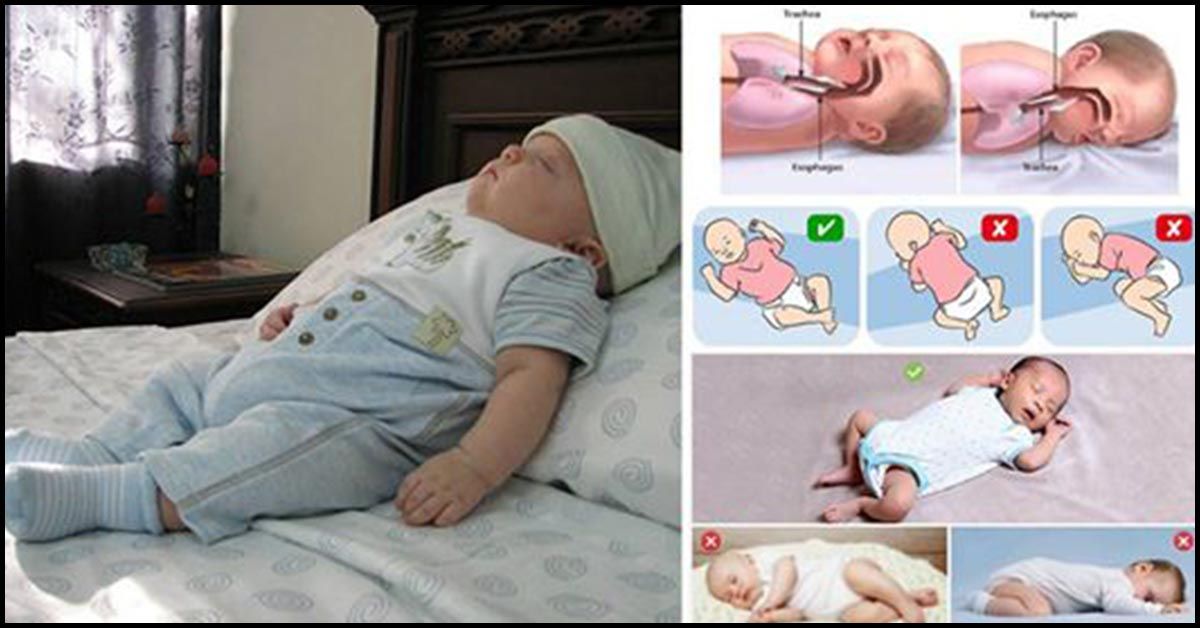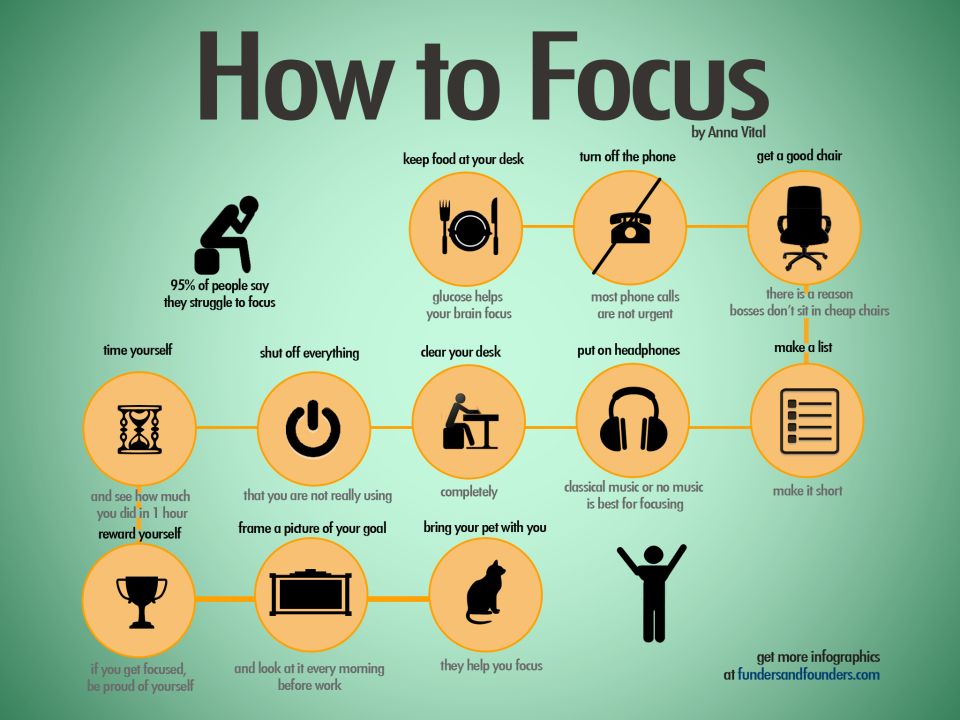Newborn doesn t sleep
Newborn Not Sleeping: Tips and Tricks
“Just sleep when the baby sleeps!”
Well, that’s great advice if your little one is actually getting some rest. But what if you spend more time pacing the halls with a wide-eyed newborn than you do catching some Zzz’s?
Read on to learn five common reasons why some babies like the nightlife, and what you can do to get back on the sleep train.
Some babies start sleeping on what’s called a day/night reversal schedule. Your baby sleeps well during the day, but is awake and busy at night. It’s frustrating and exhausting, but it’s temporary.
Here are a few things you can do to help your baby learn that day is for play and night is for rest:
- Keep them awake a little longer during each waking period during the day. This will help increase the need for sleep later. Some sleep experts recommend playing with your baby for a few minutes after a feeding instead of letting your baby fall asleep.
- Get your baby outside and in the sun (make sure they’re well protected, of course).
Natural light helps reset their internal clock. If you can’t get outside, place your baby’s crib or sleeper near a window that gets steady, bright light.
- Avoid sleep-inducing activities, if at all possible, during the day. Don’t fight your baby’s need to sleep. But if you can keep them out of the car seat for a bit, that extra time awake will help them later.
- Keep lights low or turn them out at night anywhere near baby’s sleeping area. Likewise for sound and movement. Your goal should be zero disruptions.
- Consider swaddling your baby at night so their arms and legs don’t move and wake them. You can also try putting them to sleep in a small crib, so they feel snug and secure.
Your newborn isn’t eating all that much in a single feeding. If you’re breastfeeding, the milk is digested quickly. That means a baby can wake up hungry and ready to fill their belly.
Hunger is a common reason babies wake during the night. Babies need to eat to grow, so it’s not healthy to try and change this need or retrain it.
Babies need to eat to grow, so it’s not healthy to try and change this need or retrain it.
Even if you know that you just fed your baby a couple of hours earlier, check to see if food is what your little one needs.
Thirst is another reason babies wake up. A drink of breast milk or formula may do the trick.
There’s almost always something going on with your newborn’s body, and a lot of it is uncomfortable.
Your baby may:
- be teething
- have a cold or allergies
- have gas
- be constipated
Every one of those things will cause a baby to wake up often during the night. Check with your pediatrician if you suspect pain or allergies could be the culprit.
If you think gas is the problem, there are some natural remedies that can help, such as massaging your baby to relieve the gas.
Some babies are so in love with their parents, they can’t waste time on sleep. Your baby wants to know what you are doing. And baby wants to play. With you. In the middle of the night.
With you. In the middle of the night.
Some parents find that sleeping in the same room helps baby feel close while still allowing parents to get some rest. (Note that the American Academy of Pediatrics recommends room sharing, but not bed sharing, with your baby.)
Babies are sensitive. Too much stimulation can throw them off their sleeping game.
Stimulation might come in the form of mom eating too much chocolate that comes out in her milk, too much pinching from Aunt Joanne, or just too much daytime play.
Baby’s wakefulness at night is often a clue for mothers who breastfeed that something in their diet is not agreeing with their baby’s tummies.
Other caregivers find that a busy day full of noise and activity makes it hard for their baby to switch to resting mode.
You can’t take back what’s already happened, but you can learn to gauge your baby’s threshold for activity. Maybe a trip to the park and a visit with the grandparents is all your baby can do for the day.
Don’t push for dinner with the neighbors, too, if you realize that means your baby isn’t going to be able to wind down and get some sleep.
In most cases, your newborn is awake at night during short phases of those early months of life. It can seem like an eternity when you’re exhausted, but it often lasts for just a few days or weeks.
It’s also likely that most of the reasons your little one is awake are temporary, and not emergencies.
But there’s an increasing call in the medical community for pediatricians to pay attention to parents when they say their babies don’t sleep.
If you think your child is experiencing an undiagnosed illness or allergy, push your doctor to take your concerns seriously. It could be the key to both you and your baby getting some much needed rest.
Sleep Consultants Tell Us How to Survive the Newborn Days
Follow their do’s and don’ts so you aren’t a complete zombie.
It’s the bane of every new parent’s life: The battle to get enough sleep. Multiple feedings per night, unexpected 3:00 a.m. diaper changes, and bouts of fussiness in the wee hours can turn even the most stalwart of new moms and dads into glassy-eyed, running-on-fumes versions of themselves.
Multiple feedings per night, unexpected 3:00 a.m. diaper changes, and bouts of fussiness in the wee hours can turn even the most stalwart of new moms and dads into glassy-eyed, running-on-fumes versions of themselves.
When you’re slogging through the sleep desert of the first months of parenthood, you may wonder if there’s hope for getting through this difficult time.
Enter the wisdom of pediatric sleep consultants.
These experts counsel new parents on how to get through the newborn days as alert and refreshed as possible. We tapped into the brains of these experts to get their best advice on making it through the sleepless nights and groggy days of parenthood. Here are 12 of their do’s and dont’s.
It may sound like an old chestnut, but proper sleep hygiene really does make a difference for maximizing your rest after baby’s arrival.
Establishing a wind-down routine and getting to bed at the same time each night prepares the mind and body for sleep — which is especially helpful if you can get to bed just after baby does.
“Night sleep develops first, so typically the first portion of the night is the longest stretch of sleep,” says certified pediatric sleep consultant Tracie Kesatie, MA, of Rest Well Baby.
Kesatie recommends implementing a relaxing routine, such as taking a warm bath or reading a few pages of a book before bed, plus turning off electronics at least 1 to 2 hours before bedtime.
2. Create the best sleep environment (for you and baby)Along with streamlining your bedtime routine, take stock of your sleep environment. Is your bedroom a relaxing place you actually want to fall asleep in? “Keep clutter, exercise bikes, unfolded laundry, and that stack of bills out of the bedroom,” says sleep educator Terry Cralle, MS, RN, CPHQ. “These are distracting to a good night’s sleep.”
Additionally, don’t feel bad if you need to take a temporary break from sleeping in the same bed with your partner. “Opt for separate beds if you and your sleep partner are having bed-sharing issues,” says Cralle. “Sufficient sleep contributes to healthy and happy relationships, and sleeping in separate beds is a healthy option.”
“Opt for separate beds if you and your sleep partner are having bed-sharing issues,” says Cralle. “Sufficient sleep contributes to healthy and happy relationships, and sleeping in separate beds is a healthy option.”
Creating a sleep-conducive environment isn’t just for parents, either — it actually applies to babies, too. “If their environment is set up for great sleep, you will get longer stretches sooner,” says certified pediatric sleep specialist Gaby Wentworth of Rockabye Rockies.
Swaddling, white noise machines, and a dark bedroom can all help baby stay asleep for longer periods.
3. Accept help (and don’t be afraid to ask for it)There’s no badge of honor for powering through sleeplessness on your own. Whenever possible, accept help — or go ahead and ask for assistance from family and friends.
“Babies typically sleep in short spurts over a 24-hour period, so allowing others to assist you with watching, feeding, or changing the baby is critical,” says Wentworth. Even if all you can manage is a quick afternoon nap while a friend cares for your baby, every little bit helps you catch up on nighttime losses.
Even if all you can manage is a quick afternoon nap while a friend cares for your baby, every little bit helps you catch up on nighttime losses.
Sometimes the best help is in plain sight: your partner or spouse! A bit of teamwork can make a major impact. “At night, take turns with your partner getting up with the baby so that you can each get some uninterrupted sleep,” recommends Kesatie.
“If you’re a nursing mom, once the nursing relationship is established, try to go to bed at the same time as the baby and see if your partner can feed the baby a bottle of pumped breast milk at the first wake-up so you can get a solid chunk of sleep during the first portion of the night.”
If you’re rocking parenthood as a single mom, remember the advice we gave you above: accept help — even for the overnight shift! Ask a friend or family member to bunk with you to listen for baby’s wake-up while you sleep peacefully, earplugs in.
Opinions vary on the subject of infant sleep training, but there can be a time and place for helping baby lengthen his sleep stretches. “My suggestion is for parents to do what they are comfortable doing,” advises Wenworth.
“Once a baby is 4 months old, you can begin doing some sleep training if it suits your family. This can look different for everyone, but the most important piece is that you have your pediatrician’s okay, and that parents choose a method that they’re comfortable with and can be consistent with for at least 2 weeks.”
6. Keep work at workIn the era of connectivity, work projects and deadlines can easily crowd their way into home life, robbing us of precious sleep. During the first months with a new baby, make an effort to leave work at work. “Limit work-related emails, texts, and phone calls,” advises Cralle.
You may even go one step further by discussing with your supervisor or HR department how your workplace could be a part of your sleep solution. “Work schedules should support sufficient sleep times,” says Cralle. “Telecommuting, staggered schedules, sanctioned workplace napping, and flex times may be viable, sleep-friendly options.”
“Work schedules should support sufficient sleep times,” says Cralle. “Telecommuting, staggered schedules, sanctioned workplace napping, and flex times may be viable, sleep-friendly options.”
When squeezing in your full 7 to 9 hours just isn’t possible, there are other ways to rejuvenate besides just sleep. Pencil in time for listening to favorite music, reading, cooking, or even working on a favorite hobby.
“You may be wondering how it’s even possible to pursue a hobby when you have a baby, but finding some time (even a few minutes) every day to do something that you really enjoy can help reduce stress,” encourages Kesatie.
We also think it’s a great idea to just sit on the sofa and watch Netflix — you do you!
8. Don’t forget diet and exercise“With diet, there’s a bidirectional relationship — the healthier you eat, the better your sleep — and the better your sleep, the healthier your food choices,” notes Cralle.
The same goes for exercise. Prioritizing healthy eating and physical activity whenever possible will give you better energy during the day and promote better sleep at night.
9. Don’t substitute caffeine for sleepThough it may perk you up in the short term, a venti latte is not liquid sleep. “Caffeine is not a substitute for sleep,” says Cralle. “If you drink it all day to stay awake, you are likely to have trouble falling asleep at bedtime.”
While there’s nothing wrong with a cup of joe here or there, try to keep consumption moderate, and don’t drink anything caffeinated late in the day. We see you staring at us, matcha cappuccino!
10. Don’t discount the power of a napCertainly, a cat nap can’t replace your full 8 hours, but when nights with a newborn have you sleep deprived, don’t disregard the effectiveness of a short daytime rest. According to the National Sleep Foundation, 20 minutes is all it takes to experience benefits like better mood and improved alertness.
For those times when you can get a quick snatch of sleep but aren’t quite feeling the urge, you may reach for medications to help you conk out faster. But be wary of reaching for meds flippantly, especially without the green light from your doctor.
“Potent prescription drugs such as eszopiclone (Lunesta), zaleplon (Sonata), and zolpidem (Ambien) have been associated with increased car accidents and more than double the number of falls and fractures in older adults,” notes Dr. David Brodner, board-certified physician in sleep medicine.
On the other hand, the right medication can be a helpful occasional aid. “Many people can benefit from a high-quality melatonin product, ideally one that lasts 7 hours, which can help regulate sleep cycles and support healthy REM sleep,” says Dr. Brodner. Talk to your doctor before trying any new medication to induce sleep.
12. Don’t ignore signs of serious sleep debtFinally, watch out for signs that sleep deprivation is reaching a dangerous point. Sleep debt is serious business. Serious enough that it can negatively affect cognitive function and performance to the point that you could appear drunk.
Sleep debt is serious business. Serious enough that it can negatively affect cognitive function and performance to the point that you could appear drunk.
And ongoing deprivation can result in some serious health effects. “The cumulative long-term effects of sleep loss have been associated with a wide range of damaging health consequences,” explains Dr. Brodner, “including obesity, diabetes, impaired glucose tolerance, cardiovascular disease, hypertension, anxiety, and depression.”
Red flags to pay attention to include trouble concentrating, forgetfulness, mood swings, blurred vision, and alterations in appetite. If any of these symptoms sound familiar, this is the time do dial up your support network and make sleep a priority as soon as you possibly can.
Last words (before you go take a nap)Believe it or not, getting enough sleep for yourself is one way of taking better care of your baby. Fatigue can impair your judgment, cause irritability, and even make you more accident-prone — none of which is good for you or your little one.
“Be unapologetic for prioritizing sleep,” says Cralle. Everyone in the family will benefit when you do.
Sarah Garone, NDTR, is a nutritionist, freelance health writer, and food blogger. She lives with her husband and three children in Mesa, Arizona. Find her sharing down-to-earth health and nutrition info and (mostly) healthy recipes at A Love Letter to Food.
Causes, Diagnosis and Treatment - NEARMEDIC Clinic Network
Immediately after birth, a healthy baby sleeps a lot. Most of the day is spent sleeping. The rest of the time he eats. In the first days of life, the child grows up, actively gaining weight. It remains for parents to observe, admire and perform hygiene and other care procedures.
Over time, the sleep intervals are reduced, the time of wakefulness increases. A long sleep should not be alarming if the child wakes up for food, notifies you of wet diapers. But the lack of normal sleep and crying for too long after taking the usual measures serve as a signal that the baby is ill.
Frequent changes in the phases of sleep and wakefulness occur from birth to a year. Later, the schedule becomes more predictable. You can look at the newborn sleep calendar to find out what intervals of sleep and wakefulness are normal for the current period of life.
When not to worry
A healthy child, upon waking up, begins to grunt at first. These are the first signals that he wants:
- is;
- drink;
- feel parental warmth and smell;
- dry diapers.
If you immediately take the child in your arms, carry out all the usual manipulations and feed, the baby should calm down. It happens that this does not happen, and the newborn cries, refuses to eat.
One of the first causes of this behavior is intestinal colic. This is increased gas formation caused by inappropriate nutrition. Sometimes it is enough to scold the child in your arms (ideally bare belly to the warm body of the parent) or massage the tummy for the symptoms to go away. In some cases, you have to resort to special means: from medicines to medical tubes for releasing gases.
In some cases, you have to resort to special means: from medicines to medical tubes for releasing gases.
ATTENTION! These procedures are best done only after examining a doctor and recommending certain means. Self-medication can change the picture of the disease, if any, as well as cause unnecessary suffering to the child without the desired effect.
Causes of colic
Colic can occur in children who are breastfed, organized according to all WHO standards, mixed and full artificial. The reason is the imperfection of the gastrointestinal tract, which reacts sharply to components that are not suitable for absorption. It is always individual, therefore, nutrition is selected patiently, with the exception of those components that caused the disorder.
How can a specialist help?
If colic is detected, the doctor will take an anamnesis, help analyze nutrition, recommend a set of measures to improve the condition, prescribe new nutrition, medications to eliminate discomfort. The doctor will monitor the condition of the baby until it is completely normal.
The doctor will monitor the condition of the baby until it is completely normal.
A specialist will show you how to stroke your baby's tummy properly to stimulate the bowels to expel excess gas as soon as possible. He will tell you about the features of the feeding regimen and the rules for laying the newborn on the tummy in order to improve digestion and prevent regurgitation.
Symptoms
The child cannot sleep for a long time, wakes up frequently. It is especially evident when the child falls asleep in the arms or on the stomach of the parents and immediately wakes up crying when trying to put him separately.
Dysbacteriosis
Another important reason that guarantees restless sleep in infants is an imbalance of bacteria in the gastrointestinal tract. After a series of tests, a diagnosis is made - dysbacteriosis. The doctor will not only prescribe treatment, but also help to identify the cause of such an unpleasant disease.
Causes:
- improper feeding;
- effects of taking antibiotics.

With proper organization of breastfeeding, there is practically no dysbacteriosis in children, unless there is a history of taking antibiotics by the mother or baby, and also if there were no episodes of supplementary feeding or supplementation with foreign mixtures, water, and other liquids.
Breast milk is an ideal, balanced environment that contains both nutrients and bacteria that ensure proper absorption of food. If necessary, a trained doctor will talk about the rules of breastfeeding recommended by WHO according to the baby's natural biorhythm.
Artificial nutrition is also designed in such a way that it contains all the necessary substances and a complex of important bacteria. But not always a specific diet is suitable for a child, you have to sort out options, take additional drugs to improve digestion.
Causes
- overeating;
- change of type of food;
- early or incorrect feeding.
Symptoms
The baby sleeps poorly and little, waking up, he can scream for a long time, not falling asleep all night. He falls asleep already in the daytime, rather from fatigue, and periodically whimpers in his sleep, a short restless sleep. May refuse to breast or bottle, arch. Does not calm down from the usual activities that helped with colic.
He falls asleep already in the daytime, rather from fatigue, and periodically whimpers in his sleep, a short restless sleep. May refuse to breast or bottle, arch. Does not calm down from the usual activities that helped with colic.
A characteristic sign is green loose stools with an abundance of mucus and undigested milk clots.
The most important signal about the normalization of the condition is the established normal sleep of the child.
Otitis
Infants are prone to otitis media. The imperfection of the structure of the hearing aid leads to inflammatory processes, often they have to be treated with antibiotics. The baby experiences severe pain that interferes with sleep, there are no visual signs, including temperature. In this case, the doctor suspects otitis in the first place, so an examination of the ears is mandatory.
Congenital pathologies
Some diseases do not have a pronounced picture, but their presence may disturb the child. Sleep problems are a clear sign of discomfort, which is characteristic of both normal teething and a number of serious diseases.
Sleep problems are a clear sign of discomfort, which is characteristic of both normal teething and a number of serious diseases.
If the baby can be calmed relatively quickly, he sleeps enough and smiles often, then you can do without consulting a specialist. When a child sleeps only from fatigue and not very calmly, this is a signal for concern. If sleep disturbance becomes unbearable, permanent, and previous examinations and measures taken have not given a positive effect, a comprehensive examination is necessary.
Diagnoses can range from subtle defects in the musculoskeletal system to developing serious problems. Most childhood diseases are subject to treatment or at least correction, which is most effective in the initial stages. Identification of the causes, making an accurate diagnosis are necessary for taking timely measures.
The network of NEARMEDIC clinics has a maximum of necessary equipment, its own laboratory, all types of examinations are carried out, specialists of a wide and narrow profile work.
Diseases of the nervous system
Problems with the nervous system are typical in a number of cases, and often parents are morally disposed to them in advance, as they have been warned by specialists. Unusual, anxious behavior is characteristic of newborns in a number of cases:
- the child was born prematurely;
- pregnancy was accompanied by complex diseases, taking strong drugs;
- immediately after birth, the child was weaned from the mother, was treated;
- births were completed with complications;
- birth with asphyxia, hematomas and other physical disorders.
In these cases, the behavior of the baby is unpredictable, the development of the nervous system occurs in different ways. Doctors can conduct an examination, identify deviations from the norm of development, identify signs of the disease. In some cases, massage, walking, taking baths with sedatives helps. In other situations, the doctor prescribes drug therapy. This is necessary to normalize sleep, as the child's psyche suffers from insufficient rest.
This is necessary to normalize sleep, as the child's psyche suffers from insufficient rest.
Some diseases of the nervous system cannot be diagnosed before the age of one or even three years, therefore, supportive therapy is carried out aimed at calming, stabilizing sleep, and the ability to relax. Such manifestations as hypertonicity, hyperactivity and other behavioral features are leveled. The absence of these measures can seriously complicate the subsequent treatment, and timely therapy can improve the situation today and facilitate the stabilization of the condition in the future.
Benefits of normal sleep
It is especially important for a child to get healthy sound sleep in the amount of time that is normal for his age. During sleep, the most active growth occurs, the psyche calms down, body cells work. Lack of sufficient rest time primarily affects mental health, which can easily provoke physical ailments. Normalization of the child's life is also necessary for parents who also experience moral suffering, do not rest as they should, become irritable, nervous.
Where to go
The NEARMEDIC network of clinics employs experienced specialists who identify the causes of sleep disorders and help eliminate them.
The doctor determines why the child is experiencing discomfort.
NEARMEDIC clinics have developed special conditions for managing the health of babies under one year old. By participating in this program, you are guaranteed medical supervision from all relevant specialists. At the conclusion of the contract, you can at any time contact the currently working specialist, get advice, examination and the necessary appointments.
Specialists have access to the latest diagnostic equipment for fast and accurate diagnosis.
If necessary, parents receive a full consultation on caring for a newborn, learn all the subtleties and features of the daily routine, everyday life, hygiene procedures, feeding. Doctors talk about the intricacies of breastfeeding or artificial feeding, teach all the important manipulations.
Doctors
Who treat the disease A newborn sleeps restlessly: what to do?
More doctorsClinics in Moscow
For all questions, you can contact the single contact center: +7 (495) 6-171-171
Why is my newborn baby awake
Is your baby awake? Is it difficult for a child to fall asleep, and it turns out only with tears? Sleep in snatches during the day or completely refuses daytime sleep? Poor sleep at night, often waking up and getting up neither light nor dawn? Have you forgotten when you slept more than 1.5 hours without a break?
How many times did you answer yes?
You are not alone. Even one affirmative answer suggests that the mother is tired, that a certain imbalance has appeared in the family, and the baby does not receive enough mother's positive, high-quality communication and laughter.
According to research, poor sleep is the most common reason parents visit a doctor for children from birth to three years of age. Why do children sleep so restlessly? In most cases, the reasons why a child does not sleep are not medical, but behavioral and can be easily corrected in most children without the use of any medication.
Why do children sleep so restlessly? In most cases, the reasons why a child does not sleep are not medical, but behavioral and can be easily corrected in most children without the use of any medication.
The team of Certified Baby Sleep Consultants Sleep Baby reveals the secret of 7 easy steps to improve your baby's sleep and make your baby sleep better:
1) Create complete darkness for daytime, and for night sleep.
Research shows that the quality of sleep in adults and children depends on the level of light, i.e. from the absence of light. This applies to both sunlight and the light emitted by the screens of computers, smartphones and tablets. Getting on the retina, the light destroys melatonin - the "sleep hormone". It doesn't matter if you turned on the light in the room where you slept for a minute to find a pacifier, or for two hours - for the baby and mom after that will be harder to fall asleep again . Even if that's not an argument enough, imagine how hard it is to get your tiny fidget to just close her eyes to sleep. That is why we darken the room well during the day to create the effect of closed eyes. There is no picture - there is nothing to consider, you can sleep.
That is why we darken the room well during the day to create the effect of closed eyes. There is no picture - there is nothing to consider, you can sleep.
Mothers often complain that the baby has confused day and night - he sleeps well during the day and stays awake for a long time at night. It is important to know that children older than 3.5 months cannot confuse day with night. When the day comes, and when the night comes, the hormonal system tells them, in particular, the sleep hormone melatonin, which begins to be produced at about the age of 3.5 months.
to ensure maximum darkness in the child’s bedroom. You can like this:
- darken the windows, in the room where you sleep, using curtains Blackout
- Buy a nightlight with a brightness regulator
- Remove all BODICE
22 - do not use gadgets in the children's bedroom
2) Try to keep the sleeping child as quiet as possible
Usually, children easily get used to sleeping with quiet household sounds, but some apartments are too noisy and some children are more susceptible and demanding on sleep conditions . If your child is in a noisy environment, a dog may bark while sleeping, or you live in a home where noisy neighbors may disturb your child's sleep, then consider using a white noise device. The monotonous noise of rain, waves, the rustle of the wind will help the baby fall asleep and set the mother in a good mood. "White noise" as if masks extraneous sounds, making them not so sharp and loud against their background.
If your child is in a noisy environment, a dog may bark while sleeping, or you live in a home where noisy neighbors may disturb your child's sleep, then consider using a white noise device. The monotonous noise of rain, waves, the rustle of the wind will help the baby fall asleep and set the mother in a good mood. "White noise" as if masks extraneous sounds, making them not so sharp and loud against their background.
Quiet:
- use a device that plays white noise
- do not leave white noise on for the entire duration of sleep
- when the child is deeply asleep, turn off the device (many specialized devices turn off automatically after 15-45 minutes)
VIDEO TUTORIALS
Baby Sleep Lessons
0-7 Years Old
More
3) Watch the temperature in the room.
Overheating is dangerous for babies, the optimum temperature for sleep is no higher than 20-22 degrees. The baby's bedroom should be regularly ventilated. It is permissible to use an air conditioner, a model with a “night mode” is ideal - with a low noise level, no light indication and with a weaker air flow.
The baby's bedroom should be regularly ventilated. It is permissible to use an air conditioner, a model with a “night mode” is ideal - with a low noise level, no light indication and with a weaker air flow.
To create a comfortable temperature:
- cool, ventilate the room before going to bed when there is no child in it
- choose cozy and safe clothes for sleep so that the sleeping baby does not freeze in it
- Please note that blankets are not safe for babies under 2.5 years old. To keep your baby warm, use seasonal sleeping bags. Children love to sleep in sleeping bags also because they create a feeling of coziness and a feeling of cocoon.
4) Make your child's bed as boring as possible.
The baby's crib should only be associated with sleep. Make baby's bedroom and crib "boring":
- never put your baby in bed to play
- avoid storing unnecessary things and toys in the bed, fasten the mobile, for example, over the changing table
- place the child's bed in the part of the room farthest from the window.
- remove all entertaining objects from the baby's field of vision: toys, pictures;
- remove or unplug all electrical appliances from the room - in addition to the unsafe electromagnetic field they emit, indicator lights can attract the child's attention
5) Come up with bedtime rituals
It can be hard for a baby, like an adult, to immediately switch after he has been actively playing and having fun. The child needs time to slow down and calm down. Calm actions, rituals, repeated in the same sequence every evening, will help the baby move from the "vigor" mode to the "sleep" mode.
Step Five - Introduce sleep routines from 4-6 months of age:
- set aside at least 20-40 minutes for getting ready for bed and rituals before going to bed in the daily routine
- put aside your household chores and phone, stay with the child at this very important time before bedtime
- gradually set the baby to sleep - turn off the TV, dim the lights in the house
- choose exactly those rituals that both you and the baby will like
- the main thing to remember is that the power of falling asleep rituals is in the regularity and accuracy of copying actions from day to day.
6) Find your ideal bedtime - the "sleep window".
"Sleep window" is the moment when active synthesis of melatonin begins in the evening - "sleep hormone" . And almost all children from 3-4 months to 5 years have a "sleep window" between 18:30 and 20:30. The "sleep window" is the best time to start sleep, it can last from a few minutes to half an hour - it depends on the environment in which the baby is.
If you missed your child's "sleep window", then the stress hormone cortisol enters the bloodstream, it will act excitingly, prevent falling asleep and prevent the child from sleeping peacefully all night.
The baby does not sleep at night and gets up early in the morning precisely under the influence of cortisol. Our grandmothers often call the action of the hormone cortisol the word "overdone".
Your task is to find your baby's "sleep window" and remember this time. By this time, he should be in bed and completely ready for sleep - all rituals outside the bed should have already been completed.
How to find the ideal time for bedtime:
- stay at home starting at 18:00, because in bright sunlight the child does not show signs of fatigue
- remember and write down the time when the child begins to yawn, rub eyes, act up
- plan your daily routine so that the baby is already in the crib by the start of melatonin production, ready for bed
7) Remove all "negative associations" or "bad habits" for sleep and teach the baby to calm down on his own .
"Bad habits" for sleep - the most common reason why a child does not sleep. “Bad habits” or “negative associations” that a baby has developed as associations for sleep are one of the most common causes of frequent night awakenings and short daytime sleep in children under 2 years old. Most often, objects or actions that parents use to help the child fall asleep develop into a bad habit, for example, a pacifier, rocking , breasts, a bottle, the presence of parents in the baby’s bed / room, physical contact, motion sickness, stroking, riding in a stroller . Everything that prevents the baby from getting comfortable and falling asleep.
If your baby is used to falling asleep in your presence and with your help, then at night, waking up alone, he cannot calm himself to fall asleep again.
The child will wake up more often during the night, calling for help again and again, until he or she learns to calm down and fall asleep on his own, or until you help him learn.
Gradually reduce your help with falling asleep and teach your baby ways to self-soothe. Do not rush to offer your help “on the first peep”, do not take the child immediately out of the crib, but give the baby a chance to try to calm himself while being nearby:
- put the baby to bed sleepy but not yet asleep
- gradually reduce your participation, giving the child the opportunity to develop the skill of self-soothing them. Do not be afraid to start working on your baby's sleep and trust the child. Even such a crumb is less excited about the upcoming changes than you are.












